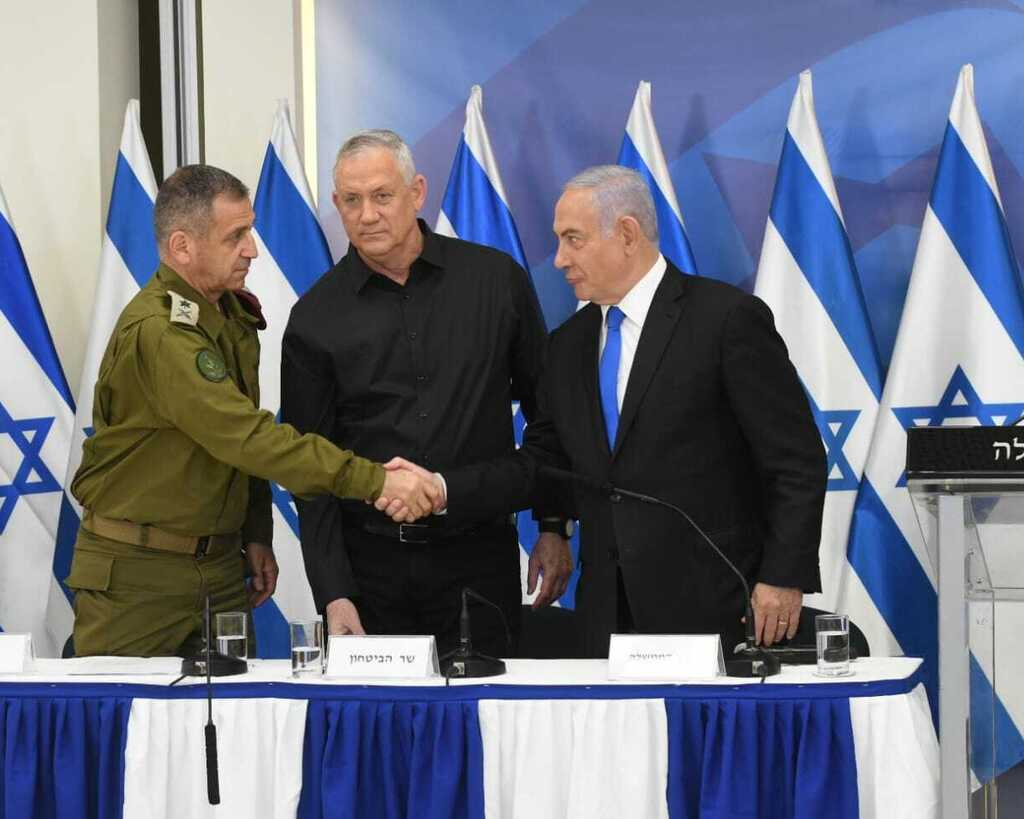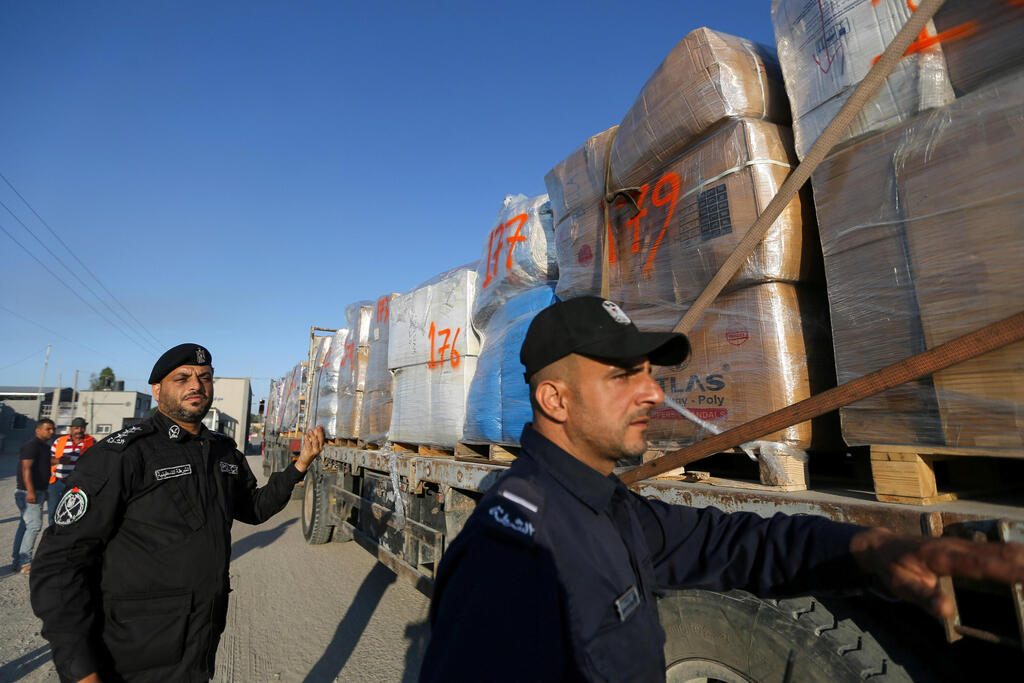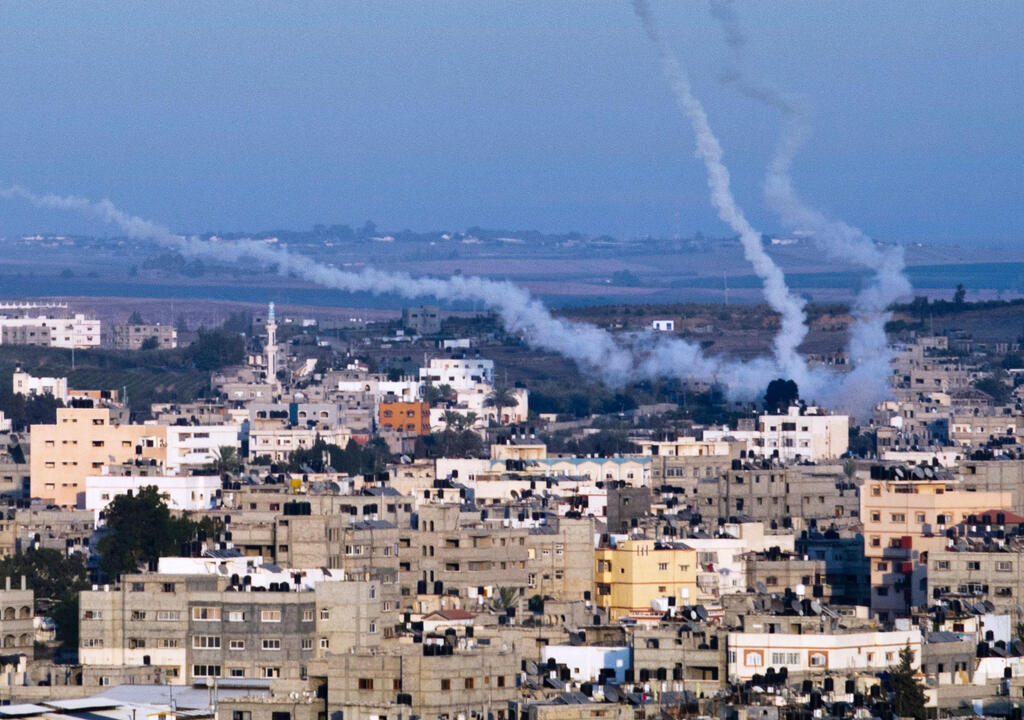Three months after the latest conflict in the Gaza Strip wrapped up, residents of Israeli border towns found themselves running for cover as rocket sirens blared on Monday, once more raising the same old hackneyed question: why did they shoot this time for?
Every time one of the Palestinian enclave's terrorist groups begins firing, locals and leaders scramble to find any rhyme or reason behind it to ease their minds.
Dabbling in such questions is a mistake in and of itself. Security officials estimate that the rockets were either retaliation for the deaths of four Palestinians in a gunfight with Israeli troops in the West Bank city of Jenin or the withholding of Qatari aid money.
So far, we can only theorize about what led to this attack, but does it really matter? Maybe if such rocket attacks were something that happened once every couple of years but this has become a daily reality for thousands of Israelis.
There is no need for explanations, there is a need for actions. Now.
Every time an explosive-laden balloon or a rocket is launched from Gaza into Israeli territory, it is a supposed manifestation of the previous administration's failures, a result of bad policy and hesitancy on the military level.
When the latest round of fighting ended in May, Israeli politicians and the military's top brass proudly boasted about the "haymaker" landed on Hamas, which in reality was more of a "forceful push."
3 View gallery


(L-R) IDF chief of staff Aviv Kochavi, Defense Minister Benny Gantz and then-prime minister Benjamin Netanyahu during a press conference a day after the fighting in Gaza ended in May
(Photo: GPO)
Monday's attack is another proof that the concept of deterrence ages about as well as milk.
Even if a "deterred" Hamas was not behind the shooting, it could not have taken place without the group's tacit support.
Israel continues to preoccupy itself with getting Qatari aid into Gaza without it falling into Hamas' hands, naively assuming it will bring stability to the strip and end all its woes.
In doing so, Israel neglects to address the crux of the problem — how to dramatically improve living conditions in Gaza while maintaining the military edge to keep Hamas at bay at the same time?
Open up the Erez Border Crossing and allow laborers from Gaza to work for Israeli border communities all while continuing to keep terrorist elements in check.
Even the IDF Coordinator of Government Activities in the Palestinian Territories, or COGAT, said that raising the number of Gazan workers allowed into Israel to 2,000–5,000 will do much more good for Gaza than the Qatari money could ever do.
3 View gallery


Palestinian police officers stand next to a truck carrying clothes for export at Kerem Shalom crossing in Rafah in the southern Gaza Strip
(Photo: Reuters)
Improving Gaza's economy is the recipe for stability and Prime Minister Naftali Bennett and Defense Minister Benny Gantz know that. IDF Southern Command chief Eliezer Toledano also supports the idea.
Gaza's economy is in desperate need of a serious makeover, and while we do not necessarily have the proper tools to carry out such a task, we do have the global community who are more than willing to pitch in and support the cause.
We've accepted the fact that Hamas is holding the reigns of power in Gaza, but who said it would stay like this forever? A coup can happen at any moment, and for reasons we cannot even imagine.
Even after Hamas will be gone, the Gaza Strip will stay.


